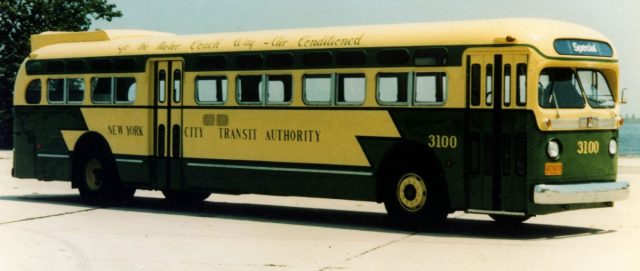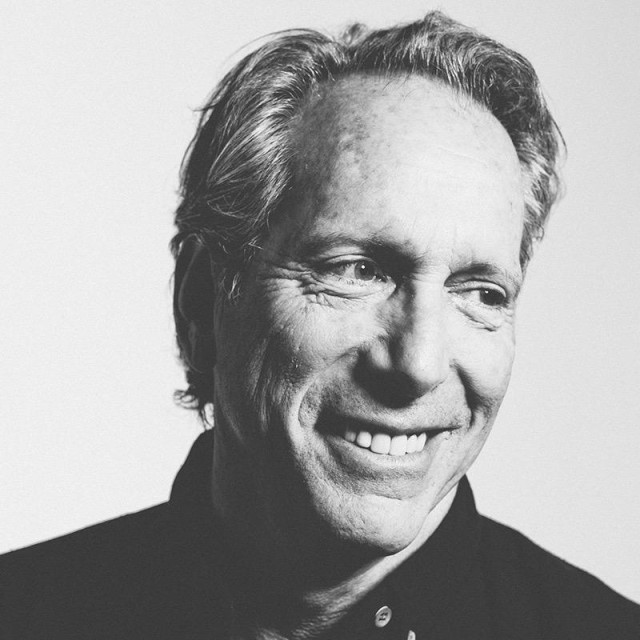
For a certain age range, you were raised by your parents, but it was Nickelodeon’s Clarissa Darling who explained everything from classic literature to dating to sibling rivalries to you on Clarissa Explains It All. While Clarissa’s television adventures are over, series creator Mitchell Kriegman has been looking for a way to return her to life, and has done so with the new novel that came out this week, Things I Can’t Explain. Though no longer a teenager, Clarissa is still a fast-talking, list-making heroine, although she’s a step removed from the “naive freak of nature,” people described her as in Clarissa Now, the show’s attempt at a spin off.
Taking the story from that show though, Clarissa now lives in New York City, and the book finds her in a relative rough patch in life, jobless, missing her friend Sam and drinking way too much coffee. As she looks for work, tries to navigate a budding romance with a new guy and extricate herself from an old one, she does her best to grow up, like everyone has to do. Before he shows up at a release party for the book at Videology on Friday, we talked with Kriegman about how the book came about, how it isn’t just nostalgia or fan fiction, the loneliness of the Financial District and even what Clarissa’s business-friendly younger brother Ferguson would think of the current crop of GOP presidential candidates.
Was this a book you wanted to do since the Clarissa Now pilot fell through or were you waiting for this big wave of 90s nostalgia that’s peaking now?
I had never stopped writing Clarissa, and that pilot is unfortunate in the sense that I got kind of kicked off of it, it got taken away from me. Somewhere after I had cast it and built the set and written about five drafts of the script, they decided they didn’t like her talking to the camera or having fantasies or having any graphics, which is the idea.
https://youtu.be/-usNP2wK9sE
Right, that’s the show
And I said, “Why did you buy it?” and they said “We like the character but you can’t do that kind of post-modern crap on network TV.” Of course, now they do that kind of stuff all the time. Anyway, I had started a while ago. I’d been writing some faux-version of Clarissa for years in one way or another, but it wasn’t until I wrote my last novel, Being Audrey Hepburn that I started to realize that I could write Clarissa in a novel. There’s been a lot of completely serendipitous things around the timing that I would have never been able to plan, because it takes a long time to write a novel. I would have done this independently regardless, whether anybody would have published it or not is another question. And when I was in teaching – I do lectures at UCSB and used to teach at Stony Brook – the students knew everything about what I did.
And it’s sort of like my career is 30 years younger than me. If you’re 40 you don’t know what I’ve done and if you’re my age you don’t know. But people in my students’ age range really know my stuff, they’re my people. So I did have that amazing warm and fuzzy feeling when I would lecture or teach that I realized people that were 12 or 14, now in their 20s and 30s really love the show. So that informed me. And this stuff with [Nickelodeon’s 90s block] Splat! which seemed so perfectly timed for this. And websites like Bustle and BuzzFeed have a Clarissa story in one form or another almost every week for the last two years, completely unprompted by me in any way. That’s just really amazing, great serendipity. I’m thrilled about it all and obviously I want people to see my book so I’m really glad. It gives me a chance to reach my audience. But it really wasn’t a girl meets boy kind of thing.
So you had these students familiar with your work, there’s all these listicles and Tumblr posts about Clarissa. With the book itself, is it something only people who grew up with the show will be able to read and understand, or is there a way in for people who are a bit younger or a bit older and didn’t grow up with the show?
I think everybody can read it, I actually went to great lengths to make sure that it works for all audiences, including men. It was read by a lot of people before I finished it and I found that people that had never seen Clarissa still found it interesting, it’s got its own kind of “independent woman in New York” kind of zeitgeist. I don’t know, I think everybody could read every book. I don’t understand the categories of young adult, new adult. What’s old adult? They’re ridiculous. You know that 55% of the people that buy young adult books are adults. So the categories are ludicrous to me. If J.D. Salinger had written Catcher in the Rye now they’d make it a YA novel. Ludicrous.
So I think anybody can read it. And what I’ve been really fascinated by is how many guys like to read it. I knew the audience [of the show] was equally guys and girls, but every time I gave the book to a woman to read, her boyfriend always wanted to read it. I gave the book to Claire Connors, a well-known editor of magazines and one of the inspirations for Clarissa to begin with, and her boyfriend gave me notes on the book. I really think it works for most people.
When I was growing up I liked the show, I didn’t look at it as “This is a girl thing.” I don’t know what 8-year-old me thought of it other than “This is a funny thing on TV,” but you sound a little surprised that guys have reacted to the book.
Yes, the book, not the show. There’s a couple reasons why I’m pleasantly surprised by the male audience. The show was designed to beat this whole thing. She was the first girl to have her own sitcom, the first girl on the network or any network, and it was designed so that guys would like it and feel just the way you felt, which I think is very interesting. That, “Oh, there’s a kid.” It was a kid-first, girl-second kind of thing. She was a girl and she acted like a girl but she didn’t talk about makeup, she had a friend who was a boy, he treated her like and equal she treated him like an equal, so it got around the issue of gender.
The truth was that boys were fifty percent of our audience, always. And I know a lot of guys felt like they were Sam or, the way she talked to the camera, she treated you like a friend. It was just an easy show that way. When you do a book these days with a female protagonist, people assume that it’s only going to be women that read it. You can’t really overtly market to guys, a book like this. So, guys will have to discover it if they want to read it. The business isn’t set up to market to guys the specific way it is for women on a book like this. So that’s why I’m happy about it.
Do you think if the book does well right out of the gate, could it be more directly advertised to guys, instead of a word of mouth kind of thing?
I think it’s gonna have to be word of mouth or someone writes about it. I don’t know that there’s a marketing plan for that kind of thing. I’d market to, I’d reach out to that audience if I could. Maybe you know. Do you know?
I’ve looked at the numbers on our site before and we’re read more by women, so I guess I don’t know either.
I think I’d have to do a video game version of Clarissa Explains It All to get the guys. I think that’s where they are.
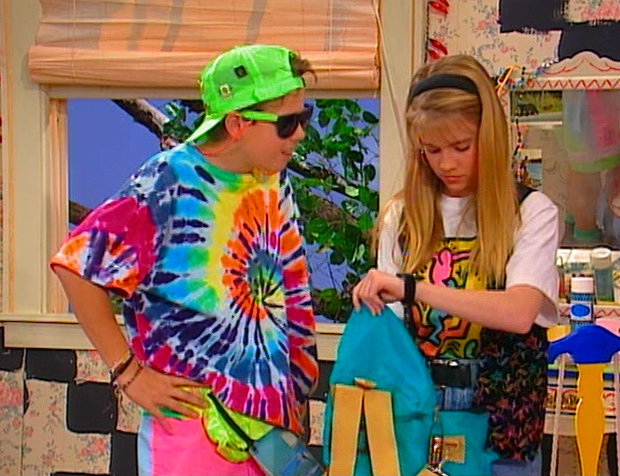
I was talking to a friend of mine about this interview and she sent me a message in all caps wanting to know what the deal with Clarissa and Sam was. I read the book, so I know what happens with them. What have people said to you about that? Especially since as you go along, it becomes apparent it’s not a “Happily ever after, move to the suburbs together” situation you would see if someone was doing fan fiction.
Well it hasn’t ended in my mind, so it’s not over. But it’s funny, the reaction can vary. There are a lot of people who would like to just have nostalgia. And believe me, if the book was just nostalgia people would be criticizing it heavily for that, and I’m not the guy to do nostalgia per se. What’s exciting to me is the fact that there’s this body of a TV show that inform this book. And it’s a lot like my first novel, where the history of Audrey Hepburn and her legend and ethos inform that book. And it happened to be in this case that I created the TV show that informed the book, which is even more fun in some ways. So now I’ve managed to forget what you asked me.
How have people reacted to Sam and Clarissa going past being just friends?
It was interesting. My editor had announced the book before I had finished it, that they bought the book. And when it was announced, there was so much internet chatter about Sam and Clarissa and other things that I hadn’t really thought about, because my original outline sort of moved on more to other things. And when I read what other people cared about when they wrote about Clarissa, I realized how important Sam was and what that relationship was. And when I started thinking about what that relationship was, it became inevitable from that point of view that it would have to go deeper. And how it would go deeper was a real conundrum for a while. And how it would develop was a conundrum and it still remains a conundrum to some degree. I felt very good about it. I felt Sam had a chance to grow up too, and that was very cool.
Was that hard? I saw another interview you did where you said that making Sam and Clarissa friends was important to you to show guys that boys and girls could just be friends without it being a romantic thing. So did you feel like you were undoing that a little bit, by getting them together?
I thought about that a lot. And that’s why I didn’t go there when I was first working on the book. I really changed my outline and my storyline after reading everything that people said, sort of like I crowdsourced the novel almost. That’s why I precluded Sam and Clarissa together, because it was a rule of the TV show that they were not romantically involved. In fact, the book has what I think is a cool retelling of the one episode where they did go on a date.
https://youtu.be/bPOFytVgj1k
And that was a touchstone to me, how I developed the book. And I feel like, we all can live with changes. It doesn’t change that they were friends when they were younger. They weren’t secretly getting it on. They weren’t behind the scene or off-screen having a different relationship than what they had. But things change, and if you’ve ever had a soulmate or a friend and seen that relationship cross, or that line between friendship and a deeper relationship get erased in a moment, then you can relate to what happens to them. It’s just the complexity of life and relationships, especially with people that you have a lot in common with.
I know you mentioned BuzzFeed and Bustle having a lot of Clarissa content, but where else in life have you seen Clarissa’s influence on the generation of people who grew up watching the show?
That’s a kind of endless question, and I’m really hugely fortunate to be able to say that. One of the difficulties in writing this and capturing her voice again is that her voice has even become a way that people talk in popular culture. A lot of characters talk like her now, or in shades of her. It’s more prevalent, this kind of warm snark, warm-hearted snark I call it. And then I’ve seen younger shows where they do opening monologues, I think Arthur’s monologues are so similar to Clarissa’s monologue in that cartoon Arthur. I’ve seen it in so many places.
There’s a lot of stuff that people don’t talk about from the sitcom perspective. The show did, obviously it had the talking to the camera thing, but I don’t consider that breaking the fourth wall. When Rachel Maddow is doing her show, she’s not breaking the fourth wall, Jimmy Fallon isn’t breaking the fourth wall, they’re just talking to you, it’s a TV image not a theatrical one. Obviously people have experimented with that. There are things in the show like the short scenes, there are very short scenes, there’s a lot that happens. Sitcoms before Clarissa were much more theatrical, they all had to happen in a very structured way, things didn’t change as much. It’s still not as advanced as the sitcoms that have happened today. The most amazing thing to me, I’ve always loved the series The Twilight Zone and I’ve always been blown away by the fact that “The Twighlight Zone” is a phrase people use in popular culture and people use “explains it all” now, like “John Boehner explains it all,” I mean it’s amazing it’s been absorbed, even the title has been absorbed.
Have you seen anything on the fashion side? You taught college kids, did they have characteristics where you saw part of Clarissa in them?
There’s a lot of stuff. People have told me that they changed how they dressed after Clarissa, that they became more independent, that they could wear what they want to. I’ve heard so many examples, even just today from one of the interviewers whose girlfriend is a video game programmer and she felt it was because of Clarissa that she went into that. Or hairdressers who liked her hair or the way she dressed and decided to become a hairdresser. Her bedroom, people told me that they felt entitled to make their own bedroom.
There was a lot of entitlement unleashed by Clarissa, in a good way. Meaning entitled to dress the way you want, entitled to talk and make your room the way you wanted it to be, entitled to choose things you want to choose. Entitled to be friends with a boy and not be always flirting with boys. These were things that were kind of intuitively in the show, that because it was fortunate to be long-lasting and people like it, it seems to have permeated how people behaved. I would never take credit for changing people’s lives, they change their own lives, there were lots of other circumstances. But it does get discussed a lot when I talk about the show.
You mentioned a Housing Works event in another interview and it said everyone dress like Clarissa but you felt like everyone wore the stuff they wear every day, and you put it as she was assimilated by the larger culture that watched her show. Is the novel a way to break her out of that?
I think what I was talking about, specifically at Housing Works, we had this contest where you dress like Clarissa. And I was expecting people to mimic Clarissa. And I was kind of shortsighted about when that meant, to dress like Clarissa. To me they would dress like a costume. And this is what blew my mind, I don’t think I expressed it in that interview, when people think about dressing like Clarissa, they think about dressing the way they feel like. They mix patterns and styles, they pull whatever they want out of their closet, so that’s dressing like Clarissa. Which is really dressing like the way they want to dress. And I was thinking they would mimic her costumes from the show. And I was sort of shortsighted about what I was asking. And so that’s how it got assimilated. And the other thing about it was it wasn’t outlandish, it was the stuff they were wearing all day long. So it becomes such an everyday thing to wear this mix of patterns and styles and to do it in a personally expressive way. So it’s almost like the concept got assimilated rather than the specific way she dressed.
I also was wondering if you were using the book so people could see the Clarissa character in a new light.
That is part of the goal too, I really wanted to do that. Even to her clothes, because she alludes to this really cool woman Lulu de la Feliz, who is this amazing unusual fashion icon. So I hope I’ve given more depth even to the way she dressed. And that’s what I was going for. If I was breaking her out of anything it’s more kind of going deeper and trying to get to a more soulful feeling for her character that went beyond what she was.
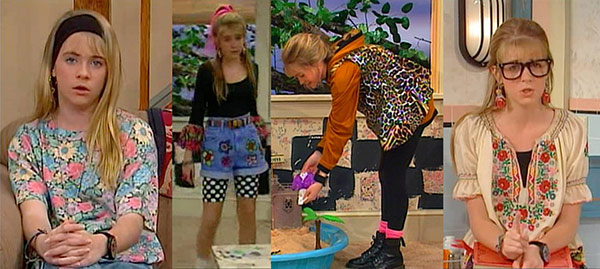
Who was responsible for Clarissa’s wardrobe?
Well, there was a woman who designed all the clothing for Clarissa and everybody else. Her name’s Lisa Lederer and we recently did an interview over at Bustle about her clothing. And Lisa has been a longtime friend of mine, she’s a genius at this stuff. And she’s actually been a consultant of mine on all my books, because so many of these characters that I create have so many fashion issues or aspirations.
So Clarissa 26 in the book. She had a job at The Daily Post but that disintegrates and she’s kind of on a downswing. I know it’s a comic novel and not Clarissa Darling’s version of The Basketball Diaries but she seems to have a straight path to success, there’s no freelancing or blogging or hustling for work, she just kind of finds a job. Do you think people will be able to relate to things being relatively easy for her?
Well see I don’t think it’s easy for her. I think that it’s very difficult for her. The book starts where she tells you what she was doing, that she became successful at what she trained to be, which was a journalist. And I think this happened definitely to that generation of people. That they have an ambition, they achieve that ambition that they trained for. And then they find that that category of work is gone. There are whole categories of employment that no longer exist the way they used to. And my take on her is that she wanted to become a newspaper journalist in the traditional sense of the word. And she got there, succeeded and then the newspaper business disappeared. And she had to learn a whole new set of skills. And had to learn some new way to make it in this new area. Which, as you probably know is not easy, is completely different from just working at a newspaper, for a local newspaper by itself. I think in that way she’s emblematic of what the whole generation has gone through, including having student loans and a lot of the other issues. I think she has to hope she can pull it off. And I think it takes a lot of resourcefulness on her part to do so.
I was curious why you had her live in Manhattan, which isn’t really the place you want to be if you’re having trouble paying rent or you don’t have a job. And also, an outerboroguh would be better for a quirky, thrift store-loving person like Clarissa. The Financial District doesn’t really have the life that you would imagine she would go out and seek.
I completely agree with your assessment. Except FiDi has these kind of ghostly offices that got converted, and in her desperation after she breaks up with her boyfriend, she takes the first thing she can get. So while it would be more prime, more typical to do what you just descibed, I thought the loneliness of FiDi was kind of interesting and I figured it gave her a good place to start from. And it related to some of the other things going on in the book. Where her favorite view of Manhattan is, and some other things. It’s a lonely place to be down there, and that’s part of what I was trying to set up.
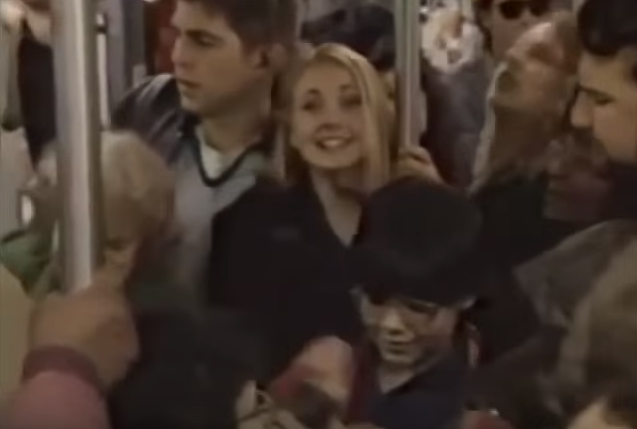
One other thing about her relatability, did you ever think about giving her roommates?
I did, and if you notice, she had one. And then she became sort of a stalker, an All About Eve/Single White Female kind of roommate. And she was fortunate to duck that bullet, but of course I think that anybody in the city would have roommates and she’s kind of on the verge, where she had one and they went away and now she’s hanging out there with extra rent to pay, not knowing whether she’s gonna have to move back home with her parents.
You’ve said you’re not done telling the story and you’ve talked about doing more, so do you think that Clarissa is the kind of woman who would stick around the city or does she have a “Why I left New York” essay in her before she moves to the suburbs to raise her kids?
I figured out what happens to her all the way up to when she’s older and has kids. I can’t really get into the details of it, but there’s a long trajectory there. I think she’ll stick around New York. Here’s my rule of thumb about New York: your first threshold is one year before anyone even says hello to you. The second threshold is three years. And if you’ve been somewhere in New York City for eight years, that’s equal to staying there for a long time, and you either keep staying there until something in the world changes, or you don’t. I think she’ll stay in New York for awhile, but nothing is forever.
You did an AMA where someone asked you how to make it in TV and movies and you said webseries are the way to go. We’re proponents of that too, so what would you tell someone who was trying to make it big on the strength of their webseries ideas?
Well it is a great thing that now you can get the attention of people through webseries. The camera technology and the access to distribution lets you circumvent what has been a very impossible process and a very geographically-centered one. It takes a lot, still, to do a web series. One of the things I went over when I taught, you have to think about fairly traditional storytelling issues in the process of what has become a nontraditional but typical format. A lot of times people plunge into it without thinking about character structure or longevity. If you look at my resume, I did a lot of series like Rugrats, Ren and Stimpy, Doug, that went to many many episodes. And it’s based on how you structure your characters. In webseries what’s different is that I pretty much would say you have to grab people by seven seconds, eleven seconds at the latest, because that’s how much time you have to get your story going and your characters engaged. That’s the simplest thing I could say in a nutshell.
Do you still talk to Melissa Joan Hart?
Absolutely, she’s been so generous with the book, and in general. She’s really down to earth, which is really unusual for a Hollywood person, who has really kept her integrity and her honesty throughout her career, I have to say. And usually when you create a character, actors forget about who wrote the damn thing. That’s why you see a conflict like the one between Charlie Sheen and Chuck Lorre. For good reason, actors take on that role and once they do they make it theirs. And sometimes, frequently, they seem to forget there was a writer involved. And an interesting thing in this situation is that a lot of people never suspected there’s been some guy writing Clarissa all this time. Sometimes I found it was a jarring experience for some people. But Melissa’s been really singular about all that, she’s just so down to earth and supportive.
I ask because I saw the preview for God’s Not Dead 2 the other day, and I was curious if you were surprised by the conservative arc her life took.
Well, what is God’s Not Dead 2? I don’t know it.
There was God’s Not Dead 1, that had Kevin Sorbo and it was about an atheist professor who makes his students say god is dead to pass his class. And they’re making a sequel where Melissa is the teacher and she gets in trouble with the ACLU and because she quotes a Bible verse in class. And Ray Wise at some point, as an ACLU attorney, says something like “We’re going to prove God is dead.” And she’s the teacher, she’s starring in it.
Oh cool. I think she’s directing it too, right?
I don’t know actually, I’ve only seen the trailer.
Oh I gotta check it out. I know she was directing a movie but maybe that’s not it. But you know what, people are entitled to have different opinions. I know she’s gotten a lot of flack for saying something about Romney, that she liked Romney or for saying something about Christie. And you know, I thought we dealt with this a long time ago. You have a right to be conservative, you have a right to be liberal, you have a right to be a socialist for crying out loud. If you play a character, that doesn’t mean you have to be that character or that character has to be you. You know, the whole conflation of performers and roles, I don’t think it’s fair to actors. Why shouldn’t they be entitled to be opinionated?
I write different kind of characters, am I Clarissa, am I Ferguson? I don’t really care what people think in that regard. I never worry about that sort of thing. I grew up in Richmond, Virginia, where there were separate bathrooms and people were frequently surprised there was a Jewish guy around. And they would call me “Rabbi.” But I became friends with some of those people. It didn’t keep me from being friends with them. I mean I don’t agree with them, they didn’t all get converted to changing politics either, but I’ve found myself able to live with people of all stripes forever. I think people should be a little more open about it. I’m never surprised when someone has an opinion that’s different from mine.
Do you have any insight into what Ferguson would think of this crop of candidates for the GOP nomination, since he was a big Qualye and Reagan guy?
I think he would have some perverse idea about the GOP candidates. I have to think about that some more, but you saw the trajectory of his life. I think he’s off to being some kind of Bourne Identity undercover guy by the time it’s over, but in his own Ferguson way. Obvously he would admire Trump, there’s no doubt about that. I think he’d be put off by Ben Carson and wonder why he keeps mumbling and he’d say he couldn’t understand him. Christie I don’t think he’d love. Rand Paul he’d be talkng about his hair the whole time. He would not understand Rand Paul’s hair. I think he would like Carly Fiorina, he’s an equal opportunity guy. He certainly wouldn’t like Bernie Sanders.
You can see Kriegman (and Ferguson actor Jason Zimbler so you can see if Kriegman picked correctly) at a release party and Clarissa trivia night at Videology on Friday, November 13 at 7pm
Leave a Reply

